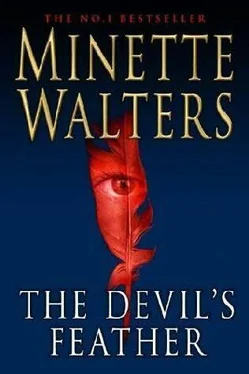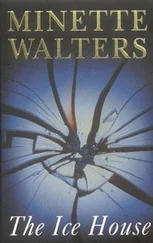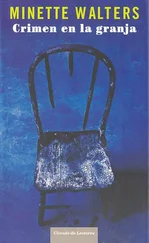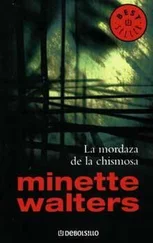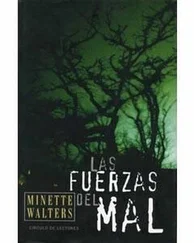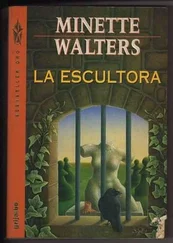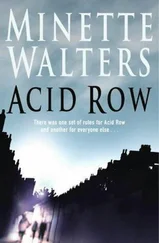CHAOS FOLLOWED hard on the arrival of the police and the ambulance. I remember the terrible clamour as the sirens wailed into the drive, and the ensuing confusion as Peter tried to explain that the “patient” had vanished. We all had different priorities. Mine was to find out what had happened to my parents, Jess’s was her dogs, and the police wanted a clear picture of events before they did anything at all.
In the first instance, they wanted to know whose blood was all over the floor and why it had been trodden in so freely, and they weren’t prepared to accept that it had all come from Bertie. Neither could I when I looked at it through the objective eyes of startled newcomers. What the dogs hadn’t flicked around in the immediate aftermath of Bertie’s death, Peter, Jess and I had tracked across the flagstones in our movements to and fro. It looked like a bloodbath and felt like a bloodbath, and the police chose to view it as one until tests proved different.
We learnt later that Bertie suffered massive haemorrhaging from his carotid artery where MacKenzie had slashed the flick knife across one side of his throat. Jess’s grief was that he didn’t die immediately but continued to pump blood until his heart gave up. Mine was that I hadn’t used the axe sooner to split MacKenzie’s head open. In the great scheme of things, Bertie’s contribution to life, liberty and happiness so outweighed MacKenzie’s that there was no contest between which of them deserved to live and which deserved to die.
Much to Jess’s and my annoyance, we were relegated to second place behind Peter. While he was invited into the dusty dining-room to give the first account of what had happened, we were instructed to wait in the kitchen under the eagle eyes of a WPC. By that time, several more police cars had arrived and the house and garden were being scoured for MacKenzie. I kept trying to raise the issue of my parents but no one wanted to hear. “One thing at a time,” I was told. In the end Jess threatened to punch the WPC if she didn’t whip up some action, and instructions were finally given to alert the Metropolitan police.
Inspector Bagley was curious about why I hadn’t used my mobile to contact my parents myself. If they were such a priority, he argued, I’d have headed for the attic as soon as Peter left the house. “You could have phoned Alan Collins,” he pointed out. “He knew the history, and he was already in contact with the Met.”
I did understand his dilemma. An obsessive need to clean seemed a poor excuse when the lives of well-loved parents were at stake. Predictably, we disagreed about how long Jess and I had been alone with MacKenzie-the Inspector favoured forty minutes (Peter’s assessment), while I favoured twenty. We compromised on thirty when police records showed that the time lapse between Peter’s 999 call and the arrival of the first police car was just over twenty-three minutes, allowing seven minutes for Peter to drive home from Barton House. But, in the Inspector’s view, even thirty minutes suggested I hadn’t accounted for all my actions.
“That’s a mighty lot of washing, Ms. Burns, and it doesn’t explain why you only remembered your parents when we arrived. You admit you saw your father’s binoculars in the bag. Why didn’t they prompt you to contact him?”
His suspicion wasn’t helped by the fact that I didn’t tell him DI Alan Collins of the Greater Manchester Police had a file on MacKenzie. Alan only entered the equation when he contacted Dorset police himself at lunchtime on Sunday, after hearing via the Met in London that my father had been rushed to hospital at three o’clock in the morning after being found, brutally attacked, in his sitting-room. With no details of what had happened at Barton House, the Met simply informed Alan that Keith MacKenzie was a suspect in the assault, and the request to check the flat had come from Dorset police.
In the belief that MacKenzie would head straight for me, but unable to warn me because he didn’t have my address or number, he rang Dorset’s Winfrith headquarters. What he told them subsequently of my history with MacKenzie, which was a great deal more detailed than anything I’d said, persuaded Bagley that I was not only well-practised at withholding information but also made a habit of it.
“Why didn’t you tell me that you failed to report this man to the Iraqi authorities, Ms. Burns? Or that it’s only in the last two weeks that you’ve divulged any information at all about your captivity?”
I toyed with saying, “You didn’t ask,” but decided he wasn’t in the mood for flippancy. “There hasn’t been time. I’ve tried to fill in some of the gaps, but most of your questioning has been about what happened here.” I looked him straight in the eyes. “I suppose I could have insisted on talking about Baghdad, but wouldn’t that have made you more suspicious?”
His eyes didn’t drop, but a perplexed frown puckered his forehead. “I can’t make you out at all,” he said. “From Dr. Coleman’s description of the video, you suffered the most appalling abuse at this man’s hands…Alan Collins says you were so frightened of him you wouldn’t divulge his identity and went into hiding…Ms. Derbyshire says you haven’t eaten or been out for a week…your parents are in hospital…MacKenzie’s still free…yet you’re sitting here in front of me as cool as a cucumber.”
“Is that a question?”
He smiled in spite of himself. “Yes. Why are you so calm?”
“I’m not sure a man would understand.”
“Try me.”
“In the first place, my parents aren’t dead,” I said.
There was no mystery about how they both ended up at the flat as MacKenzie’s prisoners. My father did exactly as Jess described, set out to lure MacKenzie into a trap, using himself as bait. Afterwards, he was given the same lecture I received about vigilantism and revenge but, as Dad took most of the punishment, no charges were brought despite question marks over his purchase of wood and nails on Friday morning.
He wasn’t very forthcoming about the details of his plan-claiming only that his intention was to confine MacKenzie and call the police-and denied knowledge or responsibility for the homemade “stingers” that ended up in Barton House. Of course Jess and I did, too, which left MacKenzie as the guilty party. I told Alan privately that my father had made them, and MacKenzie had brought them to Barton House; but, with the law as it was, none of us was going to admit to it publicly.
Initially, my father had some difficulty agreeing with Met detectives that his idea of an ambush was ill-considered and naïve, but under pressure from my mother he ate humble pie. Perhaps it was a mercy he could only nod his agreement, because the air would have turned blue if he’d been able to speak. The only detail he genuinely conceded was that, had he entered the flat accompanied by a police officer, MacKenzie wouldn’t have taken him prisoner so easily.
It’s unclear how long MacKenzie had been there-several hours if his intensive search of the place was anything to go by-but my father had no inkling of danger when he let himself in on the Friday evening. The last thing he remembered was stooping to collect the post; the next, waking up trussed and helpless in the sitting-room. He’s even less communicative about this experience than he is about Mugabe’s thugs, but when he reached hospital sixty hours later, he had five fractured ribs, a dislocated jaw and so many bruises his skin was a uniform purple.
My mother says he refused to tell MacKenzie anything and would probably have allowed himself to be punched and kicked to death if she hadn’t decided to go back to the flat herself on Saturday afternoon. “I knew something was wrong,” she said. “I tried phoning him at the flat and on his mobile, but both went straight to voice messaging. Then I called you and the same thing happened.” She smiled rather ruefully. “I could have murdered you that morning, Connie. I was so worried.”
Читать дальше
